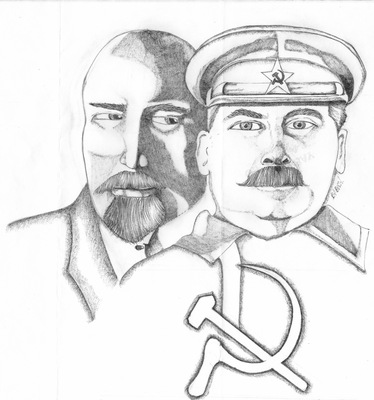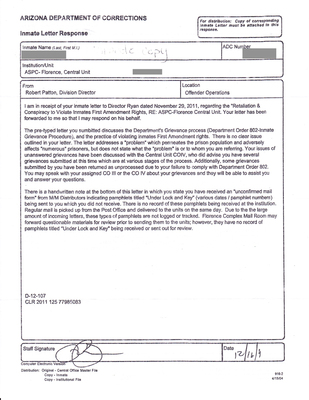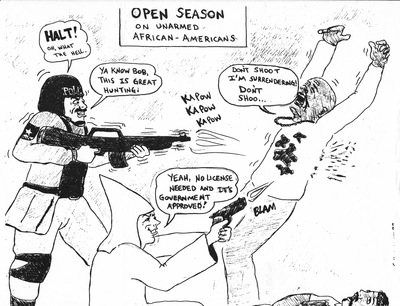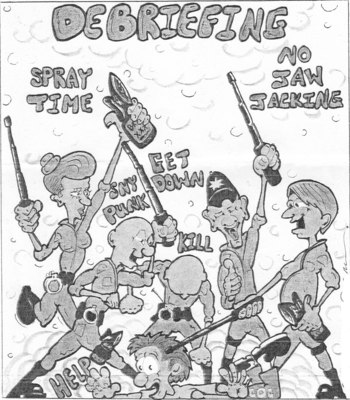
Book Review: The Essential Stalin
The Essential Stalin: Major Theoretical Writings, 1905-52
Edited with an introduction by Bruce Franklin
“…Stalin is clearly one of the three most important historical figures of our century, his thought and deeds still affecting our daily lives, considered by hundreds of millions today as one of the leading political theorists of any time, his very name a strongly emotional household name throughout the world.” - Bruce Franklin
These above mentioned words are as true today as they were when they were first written 40 years ago. The importance and relevance of Stalin’s great theoretical works were at the core of the international communist movement for damn near 90 years and should serve as a rock-hard foundation for any persyn serious about wanting to re-ignite the socialist fire that was ablaze for the greater part of the last century.
As successful as the imperialists have been in vilifying not just the world revolutionary movement but it’s once main proponent, they can never completely succeed in wiping the memory or more importantly the teachings and practice of J.V. Stalin from the minds of countless people around the globe. Yet the imperialists and their quisling lackeys such as Bob Avakian of RCP=U$A fame continue to desiccate Josef Stalin be it by “new”, “conclusive”, “secret archive” evidence or by the “new synthesis” method of attack. Therefore it is the duty of all the real revolutionaries to defend and uphold the practice of Stalin not just because it is integral to the successful practice of revolution as the people of Korea, Vietnam and Peru can attest to but because to attack Stalin is to attack the theory of Marx, Engels, Lenin and Mao as well; and the only way of doing this is to (a) study Stalin’s works and (b) put it into practice! and we will find that (c) without revolutionary theory there can be no revolutionary movement as practice gropes in the dark unless it’s path is illuminated by the most advanced revolutionary theory.
In my mission to learn the science of revolution I requested “The Essential Stalin” from MIM Distributors and must say with great certainty that my grasp of Marxism-Leniism-Maoism has been increased ten-fold thanks to my acquiring and diligent study of this most valuable Marxist-Leninist weapon of liberation. From the most intriguing introduction which is packed with such hysterical data that reads like the most vivid novel to “Marxism and the National Question”, J.V. Stalin’s first major theoretical contribution to the oppressed people of the world and to which any self-proclaimed revolutionary nationalist would be remiss not to study, to the “Foundations of Leninism” in which Stalin always the teacher clearly lays out not just the hysterical roots of the first truly successful revolutionary ideology based on Marx & Engels formulations which led to the worlds first socialist society, but in which he clearly relayed to the Soviet Union that they would stay the course set by Lenin; to “Dialectical and Historical Materialism” in which he explained the rudiments of Marxist philosophy and which was once considered required reading for all members of the Chinese Communist Party or “Marxism and Linguistics” where Stalin in replying to young communists properly put forward the place of language in the revolutionary movement while simultaneously critiquing the dominant Soviet “authorities,” i.e. revisionists, or “Economic Problems of Socialism in the USSR”, Stalin’s criticism of “two extreme tendencies in Soviet political economy, mechanical determinism and voluntarism” which were propagated by the new bourgeois in the party who wished to cause the disappearing of man in socialist production.
Surely after leading this communist jewel you will find as did I why it was Mao himself who described Stalin as “the greatest genius of our time” and labeled himself as disciple of Stalin.
Studying Stalin however isn’t always the easiest task and requires deep thought. Rest assured however that by completely immersing yourself in Stalin’s work and undertaking a painstaking study of it you will be illuminated by the shining path put forward by comrade Stalin, and while he wasn’t always the perfect communist for the Soviet Union, he was the best they had and as a result the International Communist Movement flourished.
Long Live Josef Stalin!
Related Articles:





 Alabama
Alabama
 Alaska
Alaska
 Arizona
Arizona
 Arkansas
Arkansas
 Army Post
Army Post
 California
California
 Colorado
Colorado
 Connecticut
Connecticut
 Delaware
Delaware
 District of Columbia
District of Columbia
 Federal
Federal
 Florida
Florida
 Georgia
Georgia
 Guam
Guam
 Hawaii
Hawaii
 Idaho
Idaho
 Illinois
Illinois
 Indiana
Indiana
 Iowa
Iowa
 Kansas
Kansas
 Kentucky
Kentucky
 Louisiana
Louisiana
 Maine
Maine
 Maryland
Maryland
 Massachusetts
Massachusetts
 Michigan
Michigan
 Minnesota
Minnesota
 Mississippi
Mississippi
 Missouri
Missouri
 Montana
Montana
 Nebraska
Nebraska
 Nevada
Nevada
 New Hampshire
New Hampshire
 New Jersey
New Jersey
 New Mexico
New Mexico
 New York
New York
 North Carolina
North Carolina
 North Dakota
North Dakota
 Ohio
Ohio
 Oklahoma
Oklahoma
 Oregon
Oregon
 Pennsylvania
Pennsylvania
 Puerto Rico
Puerto Rico
 Rhode Island
Rhode Island
 South Carolina
South Carolina
 South Dakota
South Dakota
 Tennessee
Tennessee
 Texas
Texas
 Utah
Utah
 Vermont
Vermont
 Virginia
Virginia
 Washington
Washington
 West Virginia
West Virginia
 Wisconsin
Wisconsin
 Wyoming
Wyoming





